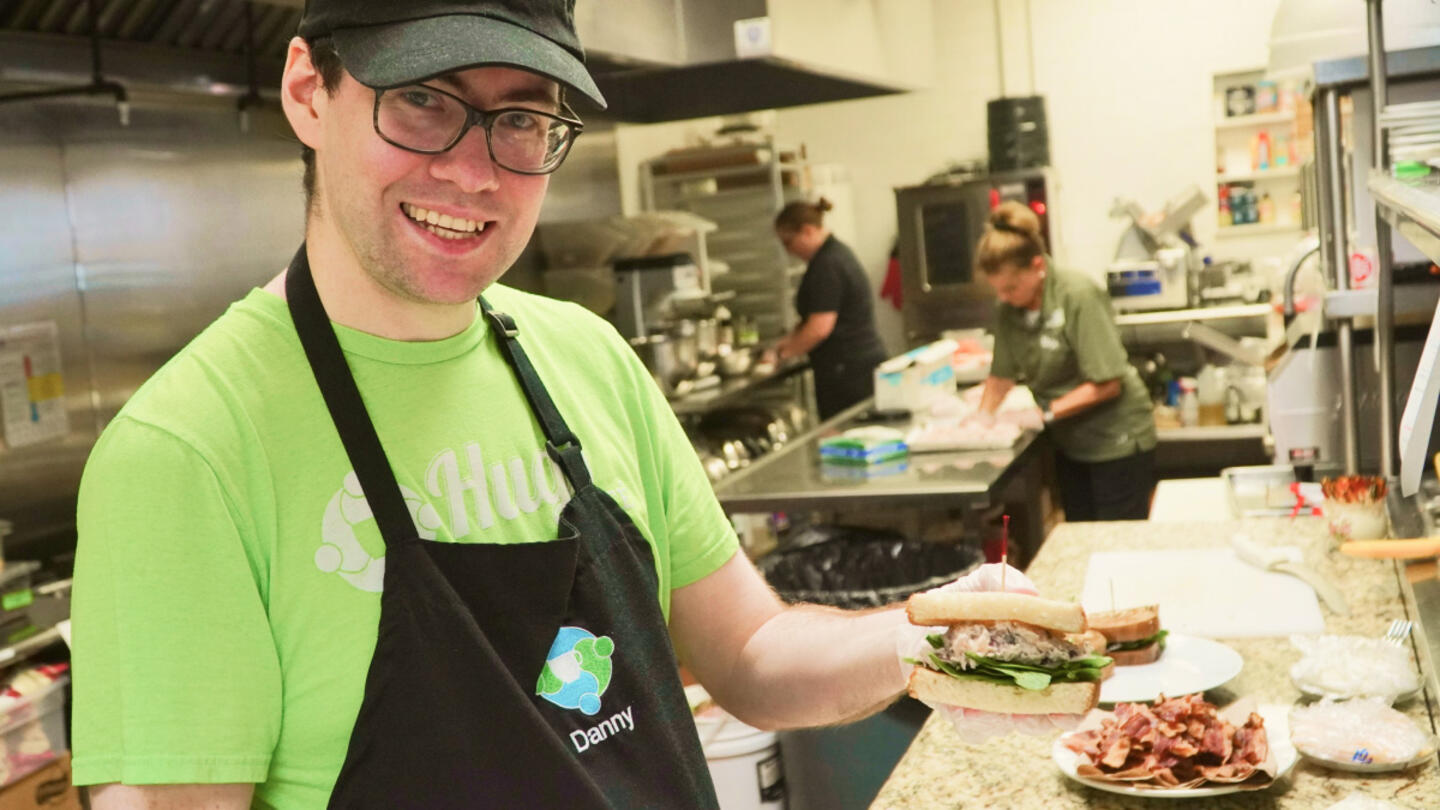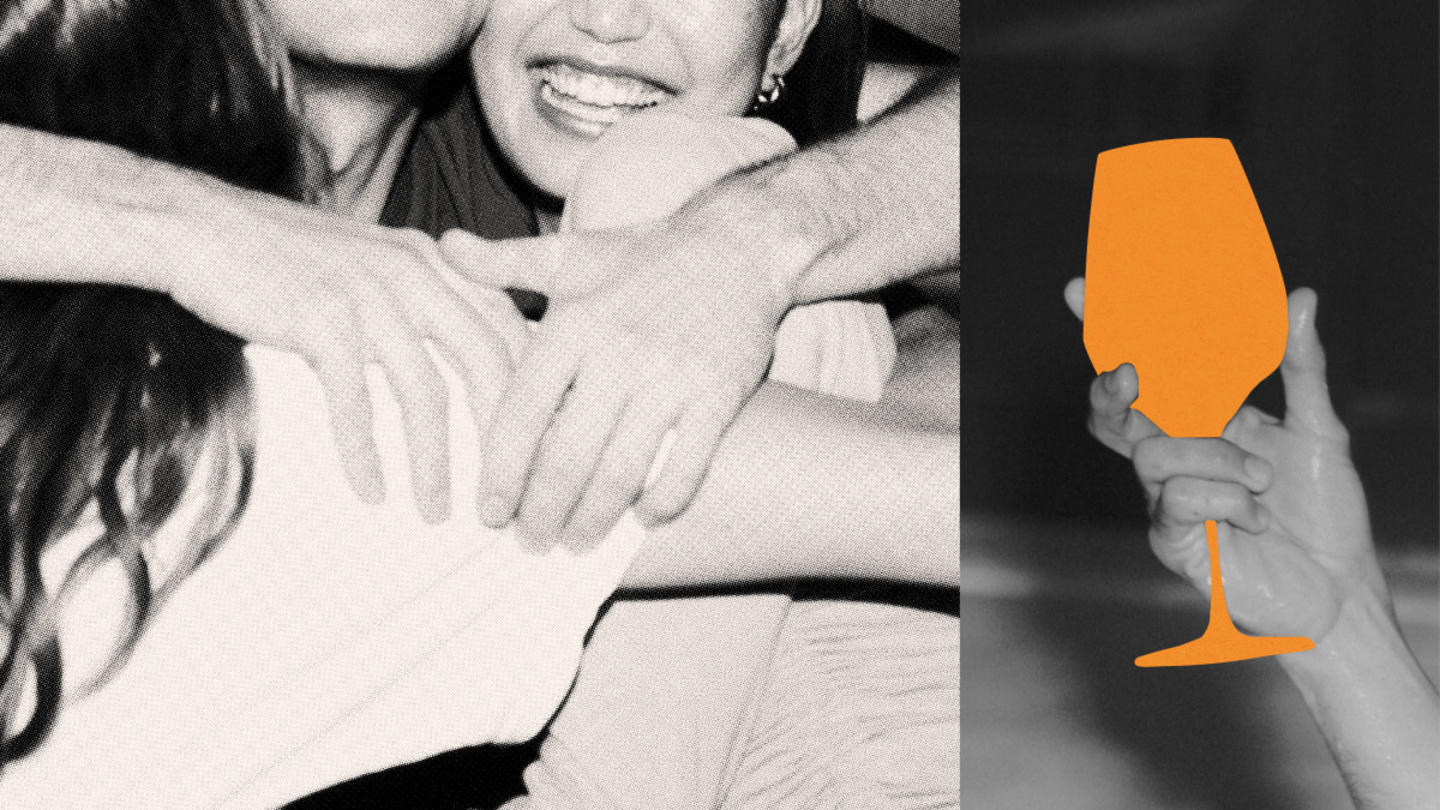For many, 2023 was the year of sobriety. Whether it was Taylor Swift quitting drinking for her Eras tour or Ari Lennox sharing on Instagram about being seven months sober, living sans alcohol has definitely been having a moment. And not just for those in recovery.
In recent years, Dry January has been a healthy way to "try" sobriety. This movement started 10 years ago in the U.K. — today, it's become a global health phenomenon, offering millions of people a reason to take a break from alcohol. For those in recovery, it's a welcome opportunity to share their sobriety with a larger community for a little while. It's also changing the recovery narrative. Explanations for why you're not drinking are no longer expected, and options for living sober are expanding. The attitude is: "We're all in this together."
This idea has taken hold in the general public, and now 1 Million Strong, a partnership between Stand Together Music, The Phoenix, and Stand Together Foundation, is creating public spaces at music festivals and venues across the country where sober people, allies, and those choosing to enjoy a substance-free experience, can have a blast together, ensuring no fan is left outside the gates. The V.I.P.-style "wellness retreats" offer comfortable seating, mocktails, photo booths, and good times. These tents aren't pushing sobriety on people who aren't interested. They're simply providing space for the sober-supportive community to gather in venues where sober-leaning individuals have traditionally felt lonely or cut off from the fun.
Reducing the stigma of addiction makes choosing sobriety easier for people wanting to make that change. Demand for this type of support is growing. In 2023, The Phoenix, a free sober active community that focuses on strength and empowerment, added around 160,000 new members. Sober bars offering elevated beverages and social experiences sans alcohol are popping up all over the United States, and there is an emerging industry for alcoholic-free ingredients.
"Let's create spaces where sobriety isn't the exception," Scott Strode, founder and executive director of The Phoenix, and Colette Weintraub, head of Stand Together Music, recently wrote in Variety. "It's a choice respected just as much as any other."
How stigma has made recovery a lonely experience
In 2023, 46.3 million Americans age 12 and older had a substance use disorder. In 2022, 109,680 people lost their lives to overdoses. The music industry is among those hardest hit. A staggering 56% of music industry professionals cite problematic substance use (versus 7% of the general population).
For decades, recovery from substance use, including alcohol, has been stigmatized. In a society where alcohol is a major ingredient of common social rituals -- holiday gatherings, weddings, dinner with friends, parties, happy hour -- social isolation has generally been accepted as part of the recovery process. Traditionally, people in recovery have been encouraged to avoid friends who still drink and to steer clear of public spaces where alcohol will be served.
This includes music festivals and venues, where alcohol has long been considered part of the experience. "When I got sober," says Strode. "I didn't ever think about going to see live music again or going to a music festival." Images from major alcohol brands line venue structures. Revelers walk around with cocktails or beer in their hands. Alcohol can be found on tap at restaurants, as the main offering at tailgates, and hidden in attendees' clothing. According to ProjectKnow, 81% of festival goers drink or use drugs during the festival. Typically, the only alcohol-related support is crisis intervention.
"Before 1 Million Strong, there would either be no sober supportive spaces," says Weintraub, "or they'd be at the outskirts of the festival, bland tents with a few fold-up chairs and a space you wouldn't actually want to hang out in, far removed from the community." The "safest" option for individuals in recovery was to avoid the music scene but it doesn't have to be that way.
Sign up for the Strong & Safe Communities newsletter for stories, ideas, and advice from changemakers working with their neighbors to address the biggest problems we face.
Bringing the sober community out of the shadows
These wellness "retreat" spaces bring the "We're all in this together" attitude into real life. They're challenging the belief that sobriety decreases a person's access to life experiences and proving that life can be colorful and exciting with or without alcohol. Centrally located at events, 1 Million Strong wellness tents provide a fun, dry experience for everyone to enjoy.
The point is not to get the music industry to sober up. It's about making music events more inclusive, supportive, and fun for individuals who don't want to drink, whatever their reason — doing it in a way that builds a supportive community for people in recovery.
"The music industry is responding in a really meaningful way," says Mallon Graham, senior project manager for 1 Million Strong. She says musicians are catching on that "their fans appreciate having no alcohol in an elevated experience and finding like-minded people to support them."
One of the initiative's first and most ambitious partnerships was with Danny Wimmer Presents at the 2022 Bourbon & Beyond festival. As the name implies, this is a music festival with significant alcohol sponsorship. 1 Million Strong created a wellness retreat for people who came for the music lineup, but not necessarily the alcohol menu. It was a hit.
"People were coming to the tent to meet up with other like-minded people to go out to the shows together," says Weintraub. 1 Million Strong was so well-received that they were asked to stay for the Louder Than Life festival the following weekend.
Several festival-goers from the wellness retreat at Louder Than Life were having so much fun together, they created their own sober mosh pit. "It was a really cool moment for these fans that were in recovery and their allies to go out together and engage in many of the traditions they previously thought they'd lost when they decided to get sober," says Weintraub.
The reception has been highly positive. The initiative has been able to install wellness retreats, not only in the middle of the festivals, but backstage supporting crews and artists as well. Musicians such as Robert Randolph, Remi Wolf, and Larkin Poe have shown up in the sober tents to support the community.
"There's this huge cross-section of music lovers that want to be around music and part of music, but don't need drugs and alcohol to do it," says Strode. "It's empowering folks in recovery and folks impacted by substance use back to music." He expects 1 Million Strong to "totally transform the music space over the next few years."
Building a sober-supportive future
Expansion is the name of the game for 1 Million Strong right now. The initiative recently collaborated with Acrisure Arena to build a permanent mocktail beverage program in its 11,000 seat Palm Springs venue, which hosts both music and sporting events. Plans are underway to expand permanent installations to additional venues this year.
The initiative is also building relationships in the corporate space. Live Nation has rolled out a 1 Million Strong program to approximately 40,000 employees, offering mocktails at all company-sponsored happy hours and events.
Dry January will continue to be one of many entry points for people to join the sober-supportive community. It's helping lift the narrative around recovery and sobriety from shame to empowerment, from weakness to strength, and isolation to community. And 1 Million Strong is giving the sober-supportive community inclusive places to congregate and meet each other in person so that navigating life without alcohol doesn't have to be a lonely experience.
"The idea of reaching one million people impacted by substance use — the vision of 1 Million Strong — seems daunting and difficult, but we are well on our way," says Strode.
If 2023 was the year "sober curious" entered the zeitgeist, 1 Million Strong is making sure its inclusive nature lasts long beyond Dry January 2024.
***
1 Million Strong is supported by Stand Together Music, which unites musicians and their teams with proven changemakers to co-create solutions to the biggest problems of our time, including criminal justice, addiction recovery, education, and free speech and peace.
Learn more about Stand Together’s efforts to build strong and safe communities and explore ways you can partner with us.

People with disabilities want meaningful work — and Hugs Cafe is making it happen.

At this ‘resort,’ children with intellectual disabilities are seen as gifts to be celebrated and loved.

Veterans experience loss when leaving service. Could this be key to understanding their mental health?

The Grammy-nominated artist is highlighting the stories we don’t get to hear every day.
